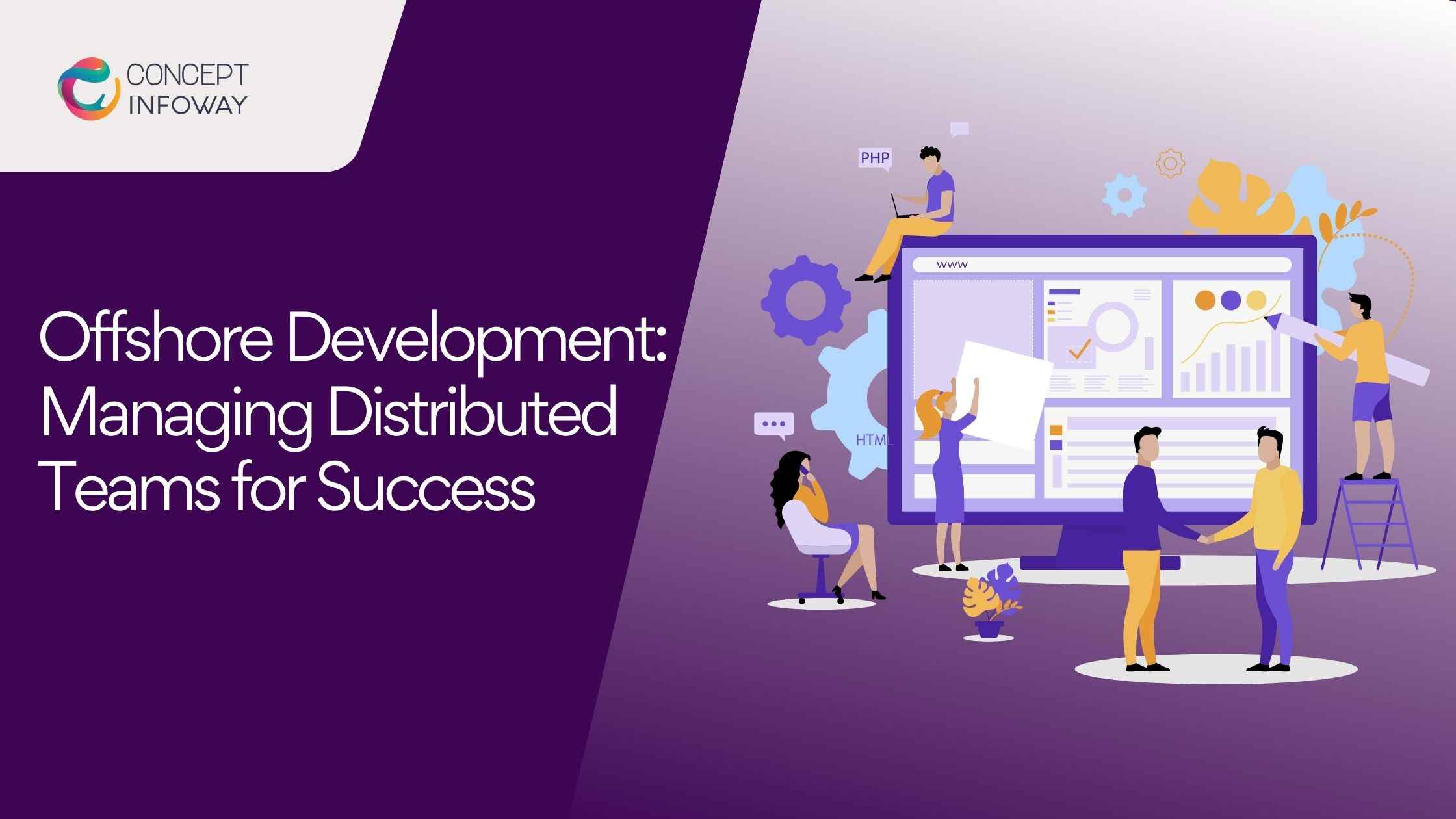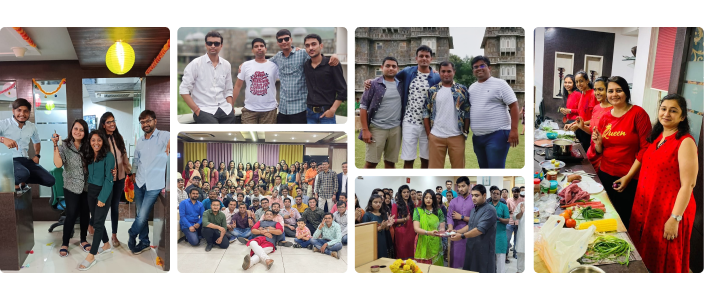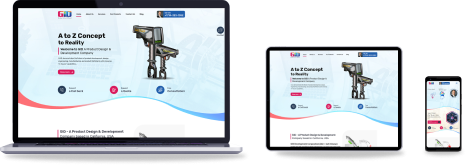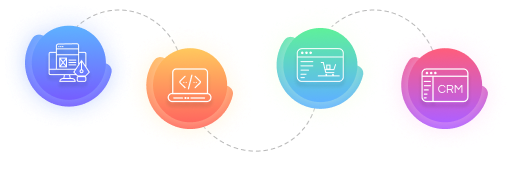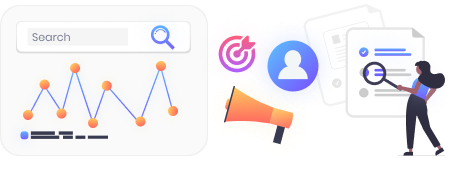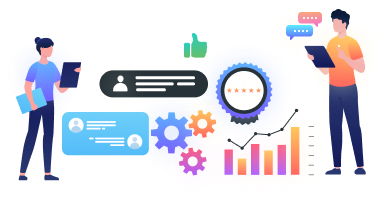
CMS Website Development: Trends and Innovations for 2025
The digital landscape is in constant flux. What was cutting-edge yesterday can quickly become outdated today. For businesses and individuals alike, a robust and dynamic website is no longer a luxury but a necessity. At the heart of many successful online presences lies a Content Management System (CMS), empowering users to create, manage, and modify their website content without requiring extensive coding knowledge. As we navigate towards 2025, the realm of custom cms development is witnessing exciting trends and groundbreaking innovations that are reshaping how we build and interact with websites.
Key Trends Shaping CMS Website Development in 2025
Several pivotal trends are set to redefine the landscape of cms website development in the coming year. Understanding these trends is crucial for businesses looking to invest in or revamp their online presence.
The Rise of Headless and Decoupled CMS
Traditional CMS architectures tightly couple the content management backend (the “head”) with the presentation layer (the “body” or frontend). Headless and decoupled CMS solutions are breaking free from this monolithic structure.
- Headless CMS: This approach focuses solely on content creation and management, delivering content as raw data (typically JSON or GraphQL) through APIs. This allows developers to build custom frontends using any technology they prefer – React, Angular, Vue.js, or even native mobile applications and IoT devices. This provides unparalleled flexibility in designing user experiences across various platforms.
- Decoupled CMS: This model still has a traditional CMS backend but offers more flexibility in how the frontend is built and integrated. While the backend manages content, the frontend is developed separately and communicates with the backend via APIs. This offers a balance between the familiarity of a traditional CMS and the flexibility of a headless approach.
AI-Powered Personalization and Automation
Artificial intelligence (AI) is no longer a futuristic concept; it’s rapidly integrating into various aspects of web development and content management. In 2025, we can expect to see even more sophisticated AI-powered features within CMS platforms:
- Personalized Content Delivery: AI algorithms can analyze user behavior, preferences, and demographics to deliver highly personalized content experiences. This can range from recommending relevant articles and products to dynamically adjusting website layouts based on individual user profiles. This level of personalization significantly enhances user engagement and conversion rates.
- Automated Content Creation and Curation: While fully AI-generated content might still be in its nascent stages for complex topics, AI can assist with various content-related tasks. This includes generating initial drafts, summarizing long-form content, optimizing content for SEO, and even curating relevant content from external sources. This can significantly streamline content workflows and free up human creators for more strategic tasks.
- Intelligent Search Functionality: AI-powered search within websites will become more intuitive and context-aware. Natural language processing (NLP) will enable users to find information using conversational queries, and AI algorithms will learn from search patterns to deliver more relevant results over time.
Read also: Guide to CMS Development for Businesses and Enterprises
Locking for Custom CMS Solutions
Contact Us Today!Enhanced Focus on Core Web Vitals and Performance
Google’s Core Web Vitals initiative has put a significant emphasis on website performance and user experience. These metrics – Largest Contentful Paint (LCP), First Input Delay (FID), and Cumulative Layout Shift (CLS) – directly impact search engine rankings and user satisfaction. In 2025, optimizing for Core Web Vitals will be an even more critical aspect of cms website development.
CMS platforms and cms website developers will need to prioritize performance optimization at every stage of the development process. This includes:
- Optimized Code and Architecture: Clean, efficient code and well-structured CMS architectures are crucial for fast loading times.
- Image and Media Optimization: Implementing techniques like lazy loading, responsive images, and efficient compression formats will be essential.
- Content Delivery Networks (CDNs): Leveraging CDNs to distribute website content geographically closer to users will reduce latency.
- Caching Strategies: Implementing robust caching mechanisms will minimize server load and improve page load speeds.
The Continued Growth of Low-Code/No-Code Platforms
Low-code and no-code platforms have gained significant traction in recent years, empowering individuals with limited or no coding skills to build websites and applications. While these platforms might not entirely replace traditional cms website development for complex projects, they are playing an increasingly important role:
- Rapid Prototyping and MVP Development: Low-code/no-code tools enable businesses to quickly build prototypes and Minimum Viable Products (MVPs) to test ideas and gather feedback before investing in full-scale development.
- Citizen Development: These platforms empower non-technical users within organizations to build and manage simple websites or specific functionalities, reducing the reliance on dedicated development teams for every minor update.
- Integration with Traditional CMS: We can expect to see more seamless integration between low-code/no-code tools and traditional CMS platforms, allowing users to extend the functionality of their websites without writing extensive code.
Serverless Architectures for Scalability and Cost-Efficiency
Serverless computing is another significant trend impacting cms website development. Cloud providers handle server provisioning, scaling, and maintenance, allowing developers to focus solely on writing code.
Adopting serverless architectures for CMS offers several benefits:
- Scalability: Serverless platforms can automatically scale resources up or down based on traffic demands, ensuring websites can handle sudden spikes in users without performance degradation.
- Cost-Efficiency: You only pay for the compute resources you consume, leading to potential cost savings, especially for websites with fluctuating traffic.
- Reduced Operational Overhead: By offloading server management to cloud providers, development teams can focus on building and improving the website rather than managing infrastructure.
Progressive Web Apps (PWAs) for App-Like Experiences
Progressive Web Apps (PWAs) bridge the gap between native mobile applications and traditional websites. PWAs offer features like:
- Offline Functionality: PWAs can cache content and functionality, allowing users to access certain parts of the website even when they are offline.
- Push Notifications: PWAs can send push notifications to users, re-engaging them with relevant content and updates.
- Home Screen Installation: Users can add PWAs to their device’s home screen, providing quick and easy access like a native app.
- Fast Performance: PWAs are designed to be fast and responsive, providing a seamless user experience.
Enhanced Security Measures and Data Privacy
In an era of increasing cyber threats and growing concerns about data privacy, security is paramount in cms website development. Regulations like GDPR and CCPA have highlighted the importance of protecting user data. In 2025, we can expect an even greater emphasis on security best practices and data privacy within CMS platforms and development processes:
- Built-in Security Features: CMS platforms will continue to enhance their built-in security features, including robust authentication mechanisms, protection against common web vulnerabilities (like SQL injection and cross-site scripting), and regular security updates.
- Data Privacy Compliance: CMS will offer more tools and features to help website owners comply with data privacy regulations, such as consent management, data anonymization, and data deletion capabilities.
- Secure Development Practices: Cms website developers will need to adhere to secure coding practices and implement security measures throughout the development lifecycle.
- Regular Security Audits: Conducting regular security audits and penetration testing will become increasingly important to identify and address potential vulnerabilities.
The Growing Importance of Accessibility
Web accessibility ensures that websites are usable by people with disabilities. This includes individuals with visual, auditory, cognitive, and motor impairments. In 2025, accessibility will become an even more critical aspect of cms website development, driven by legal requirements, ethical considerations, and the desire to reach a wider audience.
CMS platforms and cms website developers will need to:
- Adhere to Accessibility Standards: Following guidelines like WCAG (Web Content Accessibility Guidelines) is essential.
- Implement Accessible Design Principles: This includes using semantic HTML, providing alternative text for images, ensuring sufficient color contrast, and making websites navigable with assistive technologies.
- Utilize Accessibility Testing Tools: Employing tools to identify and address accessibility issues throughout the development process.
- Educate Content Creators: Ensuring that content creators understand accessibility best practices when adding and managing website content.
Read also: CMS Web Development Trends to Watch in 2025
Innovations Driving the Future of CMS Website Development
Beyond the overarching trends, several key innovations are pushing the boundaries of what’s possible in cms website development:
AI-Powered Development Tools:
AI is starting to assist developers with coding tasks, suggesting code snippets, identifying potential errors, and even automating repetitive tasks. This can improve development efficiency and code quality.
Blockchain Integration for Enhanced Security and Transparency:
While still in its early stages, blockchain technology has the potential to enhance security and transparency in CMS by providing immutable records of content changes and user interactions.
Decentralized CMS Solutions:
Emerging decentralized CMS platforms aim to offer greater control and ownership of data by distributing content across a network rather than relying on a central server.
Enhanced Collaboration Features:
CMS platforms are incorporating more sophisticated collaboration tools, allowing multiple users to work on content simultaneously and streamline content workflows.
Improved Integration Capabilities:
CMS platforms are becoming more adept at integrating with other marketing and business tools, such as CRM systems, email marketing platforms, and analytics dashboards, creating a more unified digital ecosystem.
AR/VR Integration:
While still niche, we might see early integrations of augmented reality (AR) and virtual reality (VR) experiences within CMS, particularly for e-commerce and immersive content.
These innovations, while some are more mature than others, point towards a future of cms website development that is more intelligent, secure, collaborative, and immersive.
Why is Concept Infoway the Right Choice for Your CMS Website Development Needs?
At Concept Infoway, we are more than just a cms website development agency; we are your strategic partner in building a powerful and future-proof online presence. Here’s why Concept Infoway is the right choice for your cms website development needs:
- Deep Expertise in Diverse CMS Platforms: Our team of experienced cms website developers possesses in-depth knowledge and hands-on experience working with a wide range of leading CMS platforms, including WordPress, Drupal, Joomla, and more specialized solutions. We can help you choose the platform that best aligns with your specific requirements, budget, and technical expertise.
- Staying Ahead of the Curve with Emerging Trends: We are passionate about staying at the forefront of cms website development trends and innovations. Our team continuously researches and adopts the latest technologies and best practices, ensuring that your website is built with future-readiness in mind. We understand the importance of headless CMS, AI-powered personalization, Core Web Vitals optimization, and other crucial trends, and we can implement them effectively to give you a competitive edge.
- Customized Solutions Tailored to Your Unique Needs: We believe that every business is unique, and a one-size-fits-all approach rarely delivers optimal results. We take the time to understand your specific business objectives, target audience, brand identity, and technical requirements to develop a customized cms website development strategy that aligns perfectly with your goals.
- Focus on Performance and User Experience: We understand that a fast, responsive, and user-friendly website is crucial for attracting and retaining visitors. Our cms website developers prioritize performance optimization and user experience (UX) design at every stage of the development process, ensuring that your website delivers a seamless and engaging experience across all devices.
- Commitment to Security and Data Privacy: We take security and data privacy very seriously. Our development processes incorporate robust security measures to protect your website and user data. We stay up-to-date with the latest security best practices and data privacy regulations to ensure your website is secure and compliant.
- Scalable and Flexible Solutions: We build CMS websites that are designed to scale as your business grows. Whether you need to add new features, handle increased traffic, or integrate with other systems, our solutions are flexible and adaptable to your evolving needs.
- Comprehensive Range of Services: Concept Infoway offers a comprehensive suite of cms website development services, including:
- CMS platform selection and consultation
- Custom theme development and design
- Plugin and module development
- Website migration and upgrades
- Performance optimization
- Security audits and implementation
- Ongoing website maintenance and support
- Transparent Communication and Collaborative Approach: We believe in clear and transparent communication throughout the cms website development process. We work closely with you, keeping you informed at every stage and incorporating your feedback to ensure the final product exceeds your expectations.
- Dedicated and Experienced Team: Our team of cms website developers, designers, project managers, and QA testers are highly skilled, experienced, and dedicated to delivering exceptional quality. We are passionate about web development and committed to providing you with the best possible service.
Frequently Asked Questions – FAQ
What is CMS website development?
CMS website development involves building websites using a Content Management System, allowing users to create, edit, and manage content with ease. Concept Infoway offers tailored CMS solutions, ensuring user-friendly, scalable, and efficient websites for your business.
What are the benefits of CMS website development?
CMS website development offers ease of content management, scalability, and cost efficiency. It simplifies website updates and reduces dependency on developers. Concept Infoway specializes in delivering CMS websites that enhance user engagement and help grow your business seamlessly.
How does CMS website development work?
CMS website development allows users to manage content without technical skills. The system separates content from design, making updates easier. Concept Infoway’s experts design custom CMS websites, ensuring a seamless experience and optimized performance for your business.
What are the most popular CMS platforms for website development?
Popular CMS platforms include WordPress, Joomla, Drupal, and Magento. Each offers unique features for different website needs. Concept Infoway helps you choose the right CMS platform, ensuring a tailored solution that maximizes performance and aligns with your goals.
What are the common challenges in CMS website development?
Common challenges include plugin compatibility, security risks, and performance issues. Concept Infoway addresses these by providing secure, optimized CMS websites with regular updates and custom solutions to ensure smooth functionality and a seamless user experience.
What are the security features of CMS website development?
CMS website development includes security features like SSL encryption, regular updates, and secure plugins. Concept Infoway ensures your website is secure with best practices, including security audits, keeping your website protected and minimizing risks.
How does CMS website development impact website scalability?
CMS website development ensures your site can grow as your business expands. A well-structured CMS accommodates more content and traffic. Concept Infoway designs scalable CMS websites, ensuring your site can easily handle future growth without compromising performance.
Conclusion
The world of cms website development is dynamic and exciting. As we move towards 2025, the trends and innovations discussed in this guide will continue to shape how we build and interact with websites. From the flexibility of headless CMS to the intelligence of AI-powered personalization and the critical importance of performance and security, businesses need to embrace these advancements to create compelling and future-proof online experiences.
Choosing the right cms website development agency is a crucial step in this journey. Concept Infoway deep expertise, commitment to innovation, and client-centric approach make us the ideal partner to help you navigate this evolving landscape and build a website that not only meets your current needs but also positions you for success in the years to come. Contact us today to explore how our cms website developers can help you leverage the power of the latest trends and innovations to create a truly exceptional online presence.
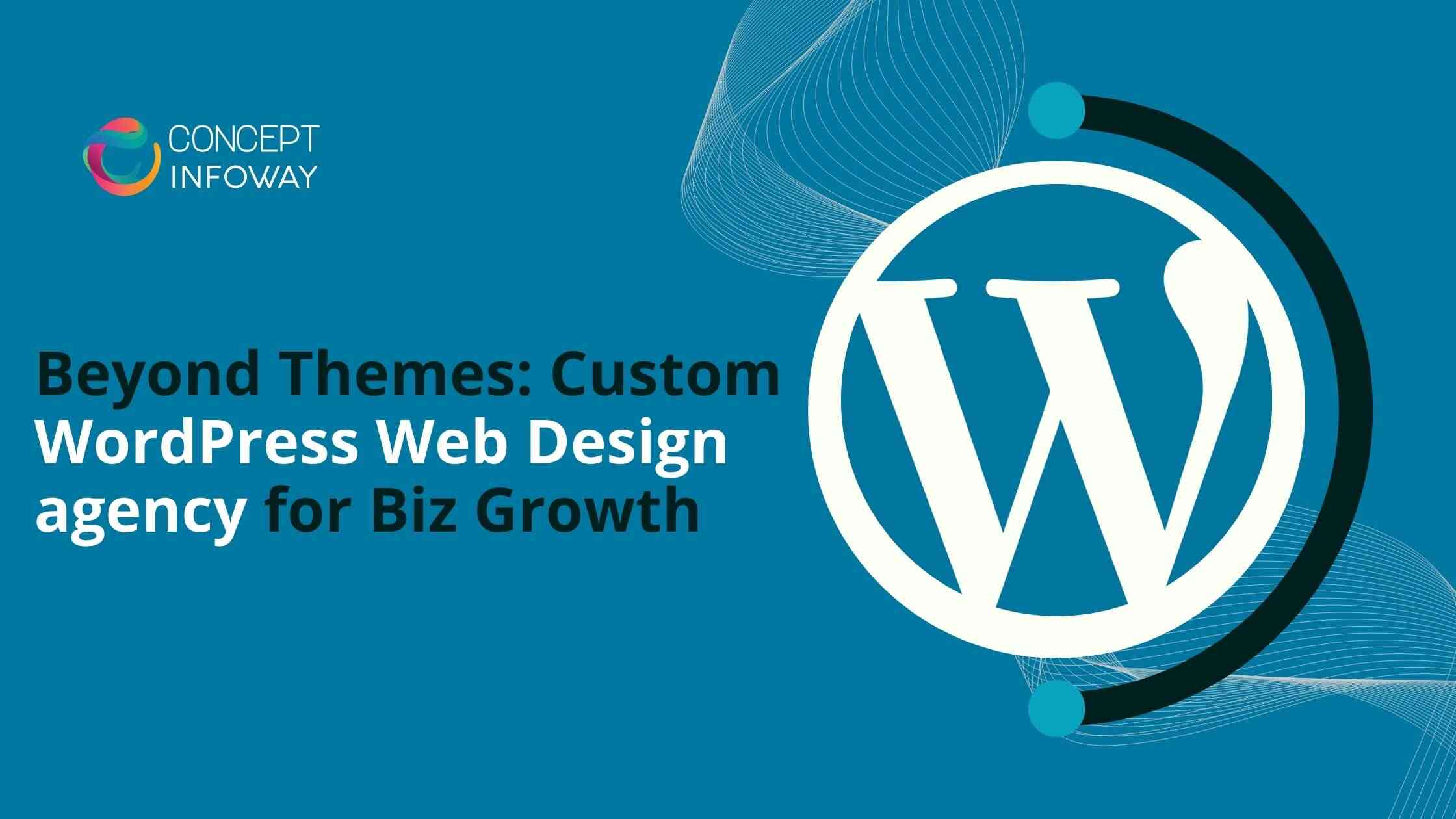
Beyond Themes: Custom WordPress Web Design for Biz Growth
